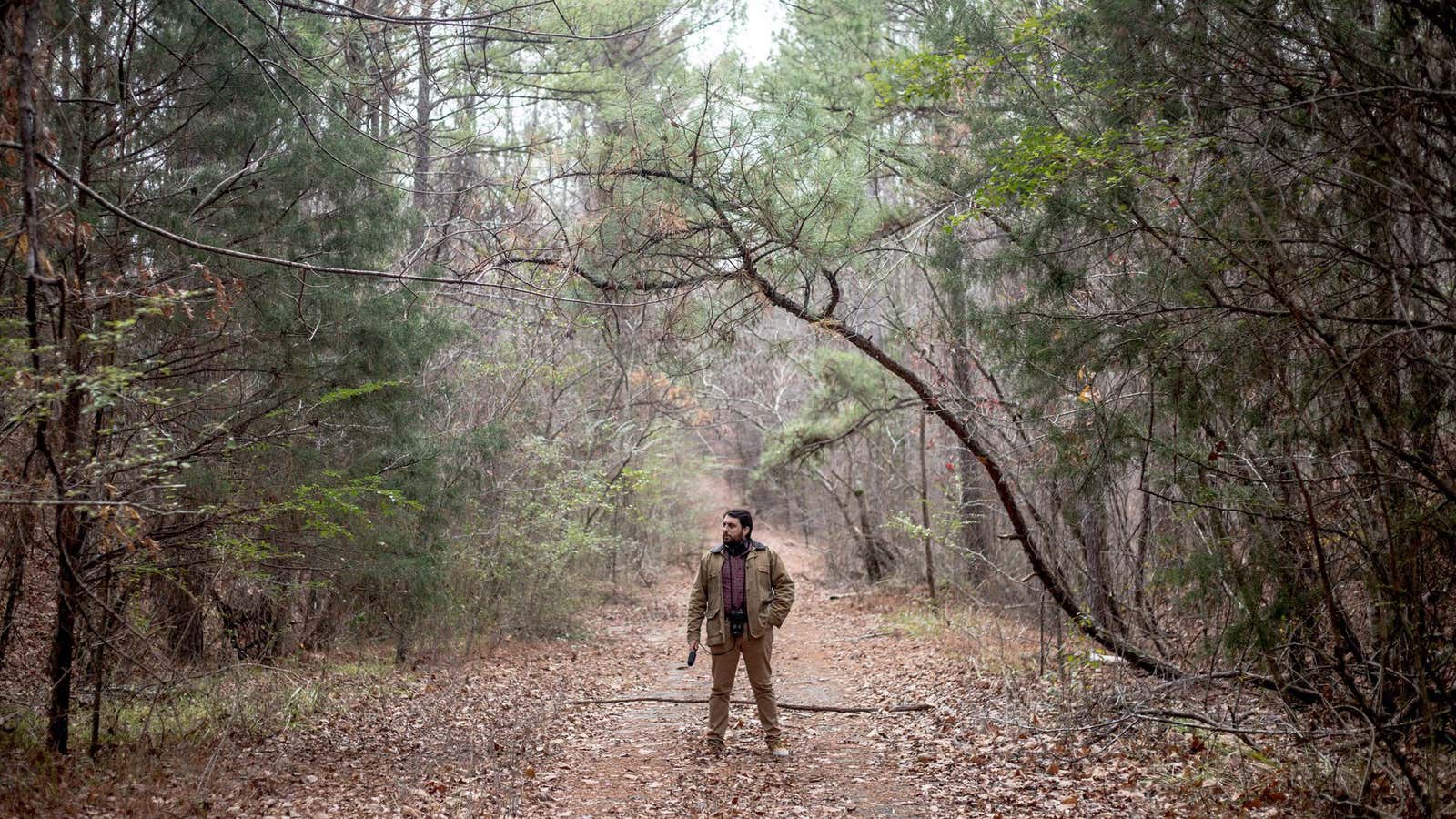Serial proved that true-crime podcasts could be global phenomena that rival even the most prestigious of prestige scripted television. But with S-Town, the new podcast from team Serial that launched today, the creators aren’t taking their cues from HBO. Instead, they’re borrowing a page from William Faulkner, hoping to re-invent the medium once again—this time as a sweeping, Southern Gothic novel.
Hosted by This American Life producer Brian Reed, S-Town is the latest offering from Serial Productions, which includes Serial host Sarah Koenig and executive producer Julie Snyder. The seven-part podcast, released in its entirety today, follows Reed as he meets, and ultimately befriends, a fascinating man who claims to have knowledge of an unsolved murder in his rural Alabama town (which the man nicknames ”Shittown”—hence the podcast’s name).
But what begins as a classic murder mystery quickly turns into something much deeper—a winding, intricate narrative of small town politics, family strife, and, as the S-Town team describes it, “the mysteries of one man’s life.”
The man who summoned Reed’s help, named John McLemore, gives Reed a copy of Faulkner’s A Rose for Emily as background reading. And the maze of McLemore’s life, which Reed attempts to navigate, is echoed by a literal maze the reclusive man has built in his yard. This isn’t HBO’s The Night Of or AMC’s The Killing, this is Flannery O’Connor’s Wise Blood in podcast form. Except it’s all true.
Some reviews of the podcast have already compared it to a novel. And that’s also how its creators are pitching it. “With Serial, we were experimenting with using television as a model,” Snyder told Wired. “With this one, we looked to novels.”
“In a novel, you’re entering into a hermetic world,” she added. “That’s what we were trying to do, that we hadn’t yet done with a podcast: where you can enter their specific world, and you don’t know really know what it’s about or where it’s going, but hopefully you’re compelled to stay in it the whole time.”
It’s a bold strategy from the Serial creators, who are clearly trying to do more than just recreate the success of their hit 2015 podcast (a feat they failed to achieve with their second installment, on the story of US Army deserter Bowe Bergdahl who was captured by militants in Afghanistan).
A Faulkner-esque novel may prove to be a harder sell to audiences than a thrilling murder mystery. Instead of asking “whodunit?” around office water coolers, listeners are more likely to ask themselves more existential questions, about friendship, violence, poverty, and isolation.
